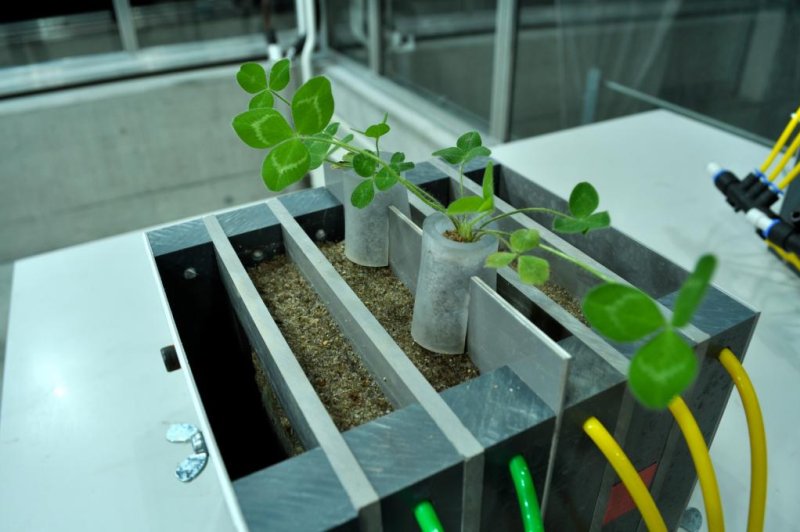Scientists tracked how phosphate-carbohydrate exchange rates between plant and fungi changed depending on how many fungi were at the bargaining table. Photo by UZH
ZURICH, Switzerland, April 14 (UPI) -- It appears plants have a basic understanding of microeconomics. When faced with two fungi, one cooperating more and the other less, plants will offer more resources to the most cooperative fungus until the other starts sharing more nutrients.
Many plants rely on fungi to retrieve deep-lying nutrients and deliver them to its roots. In exchange for phosphates, the plant trades carbohydrates. Sometimes, a frugal fungus will offer a stingier rate of exchange.
Researchers in Switzerland presented plants with varying numbers of fungal partners to learn more about plants' decision making.
As the team of scientists found out, a plant without any other fungal trading partners has no recourse against a hard-bargaining fungus. But when a more generous fungus is also doing business with the plant, the market dynamics change.
"The plant exploits the competitive situation of the two fungi in a targeted manner, triggering what is essentially a market-based process determined by cost and performance," Andres Wiemken, an environmental scientist at the University of Basel, explained in a news release.
The findings -- published in the journal Ecology Letters -- could inspire economists.
"Because plants make their decisions based on physiological processes and are not distracted from the best course of action by subjective thought, they could even be better models than animals and people," added Bernhard Schmid, an environmental scientist at the University of Zurich.
The research is also a reminder of the importance of fungal diversity in soil used for agriculture.
"Mycorrhizal fungi increase the sustainability and productivity of agricultural ecosystems," said Schmid. "For this reason, it is essential to maintain as much diversity within mycorrhizal fungi as possible in the agriculture sector going forward."















